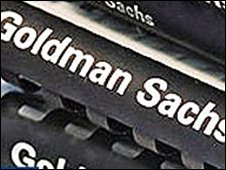
Europe's Ariane 5 rocket has wrapped up its 2008 campaign with another dual launch from the Kourou spaceport.
The vehicle was carrying two satellites into orbit for the Eutelsat company.
The Hot Bird 9 and W2M platforms were put on a path to geostationary orbits, to provide a mix of TV, radio and other telecommunications services.
It was the sixth flight for an Ariane 5, in a year that also saw the rocket start to service the International Space Station (ISS).
Its primary role, though, will continue to be as launcher of commercial telecommunications satellites.
Lift-off for the Eutelsat mission was delayed by technical problems and left the ground at 2235 GMT, about three-quarters of an hour later than planned.
It is the first time that two platforms belonging to one of the major operators have been launched on the same rocket.
Eutelsat CEO Giuliano Berretta is a big admirer of the "excellent" Ariane; he is a frequent customer.
But in a wide-ranging interview ahead of Saturday's flight, he said satellite operators wanted to see more competition among launchers, to bring down prices.
Export controls
At the moment, he believes there are too few rockets to choose from.
"We would like to buy Chinese rockets, for instance," he said.
"They're very good, very safe; they're constructed for human flight after all. But we're in a situation today where you cannot launch satellites with American components using Chinese rockets. It is against the ITAR restrictions of the United States."
The International Traffic in Arms Regulations (ITAR) are designed to stop sensitive US defence technologies getting into the wrong hands.
Satellite operators, in particular, have been put under close scrutiny ever since a spacecraft carrying encryption technology was destroyed on launch in China and not all the debris was recovered.
Some manufacturers are now promising to build satellites free of all US components. Certainly, Mr Beretta is supportive of moves within the US itself to have ITAR reviewed.
He is waiting to see how the new Obama administration will act on the issue; although, it has to be said, it was the previous Democratic (Clinton) administration that put the ITAR focus very squarely on space services.
Growth markets
As chairman of the European Satellite Operators Association, it is in Mr Beretta's brief to take on the big issues affecting his industry.
In recent months, this has meant battling proposed changes to EU telecoms regulations designed to tidy up and free up spectrum for emerging technologies, in order to ensure the unique position of satellites is recognised.
The association has been concerned at what it sees as an attempt by Brussels in some of this exercise to usurp matters normally left to the International Telecommunication Union, the UN body that oversees radio spectrum regulation.
In Mr Beretta's line of fire has been the suggestion that satellite operators might have their frequencies reviewed within just a few years.
"It is impossible," he said. "Satellites are living longer; their lifetime is now normally 15 years. We need stability in the rules otherwise it will kill the economics of the satellite. Once they are up in space we cannot send someone up to change them."
The combined launch mass of the Hot Bird 9 and W2M satellites is just over eight tonnes. The Hot Bird will be serving primarily TV services to western Europe, North Africa and the Middle East.
The W2M will serve TV and also data services to what Eutelsat calls its "second continent" - eastern Europe, including Russia. The region is experiencing rapid growth.
"Today, television is our biggest market; 75% of our business is TV. But in the future, other activities will increase, such as addressing the digital divide with small terminals that will get broadband internet everywhere," said Mr Beretta.
"Then there are the mobile systems where satellites can complement GPS and Galileo services, where you determine your position and thanks to that you get sent information - where the local hotels and restaurants are, etc. This is info-mobility."
Saturday's Ariane 5 mission marks the 42nd launch of Europe's workhorse rocket. In March, it lofted the "Jules Verne" freighter to the International Space Station.
Next year's highlights include the dual launch of two European Space Agency telescopes - Herschel and Planck.
Both will be sent out to an observing position some 1.5 million km from Earth, to study the Universe at far-infrared and microwave wavelengths.









































